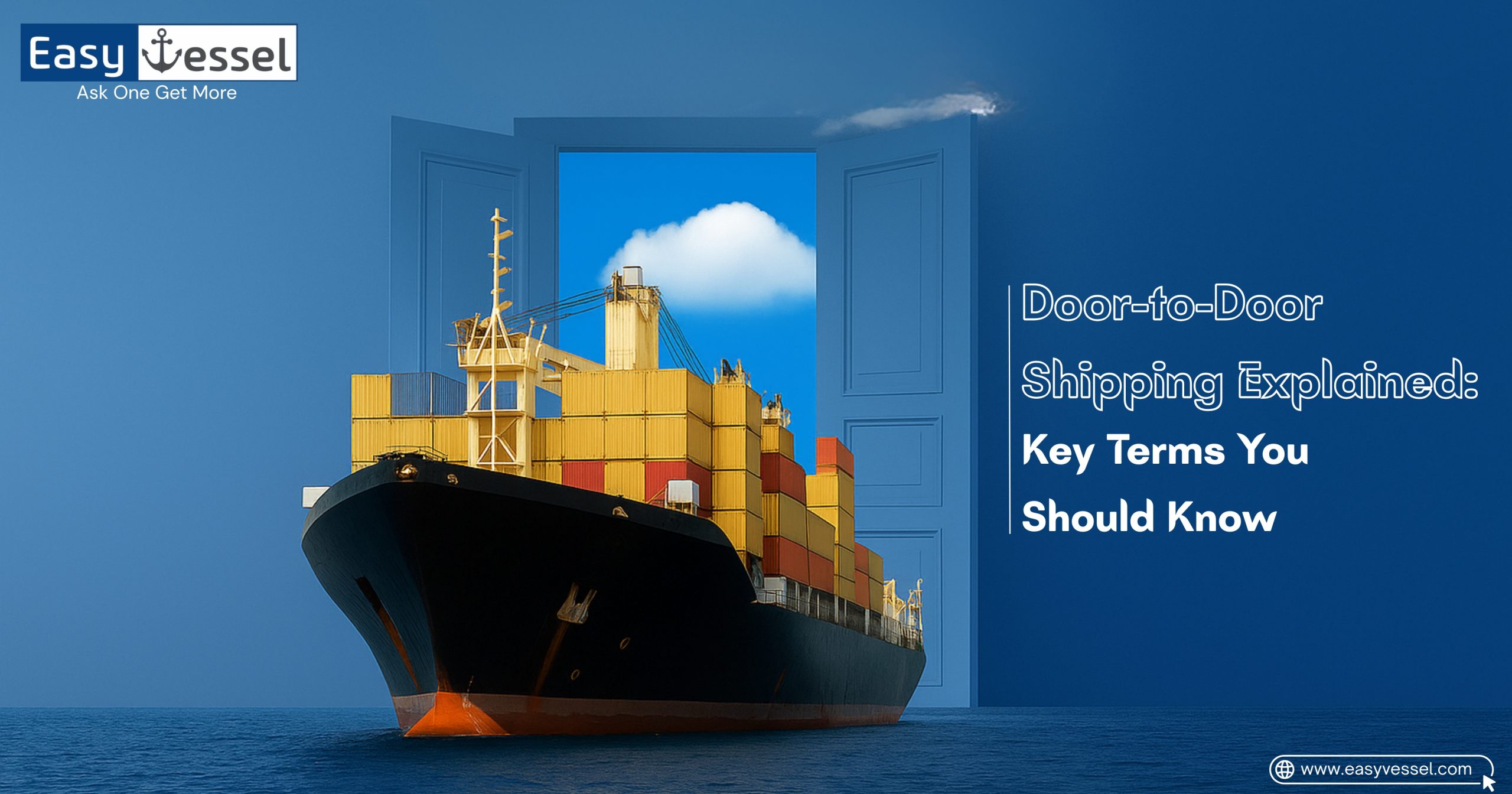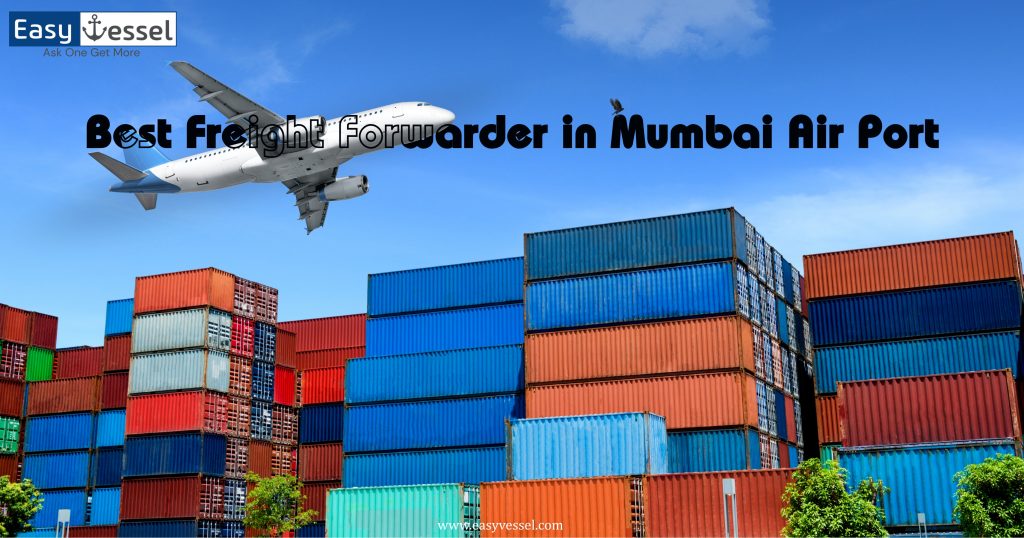In today’s fast-paced global market, businesses rely heavily on efficient shipping methods to maintain their supply chains and ensure customer satisfaction. Door-to-door shipping is one such technique that has grown in popularity due to its ease of use and efficiency. This service ensures that goods are picked up from the seller’s location and delivered directly to the buyer’s specified address, minimizing the hassle of coordinating multiple logistics providers.
But as convenient as door-to-door shipping may sound, understanding the key terms involved is crucial for businesses and individuals to avoid miscommunications, hidden charges, or unexpected delays. This guide breaks down the essential terms and concepts you need to know.
What is Door-to-Door Shipping?
Door-to-door shipping is a logistics service where the freight forwarder or shipping provider handles the entire transportation process—from the origin point to the final destination. This shipping includes pickup, transportation, customs clearance, and final delivery.
This shipping method is ideal for individuals and businesses seeking a hassle-free solution. It’s commonly used in international shipping, where managing multiple carriers or dealing with customs procedures can be complex.
Key Benefits of Door-to-Door Shipping
Convenience: You don’t need to manage multiple service providers. Everything is handled by one logistics company.
Time-Saving: Since the service provider takes care of the entire shipping process, it saves time in coordination and tracking.
Cost-Effective: By bundling services, door-to-door shipping can often be more cost-effective than separately hiring each stage.
Risk Reduction: With a single point of accountability, there is less risk of Miscommunication or errors during transit.
Important Terms You Should Know
a. Freight Forwarder
A logistics specialist who arranges the transportation of products for a company or individual is known as a freight forwarder. They handle transportation, documentation, and customs clearance. Freight forwarders are especially vital in door-to-door services as they oversee the logistics chain.
b. Incoterms
Short for International Commercial Terms, Incoterms define the responsibilities of buyers and sellers in international trade. They specify who is responsible for transportation, insurance, import duties, and other logistics. In door-to-door shipping, common Incoterms used include DAP (Delivered at Place) and DDP (Delivered Duty Paid).
c. Bill of Lading (BOL)
A Bill of Lading is a legal document issued by a carrier that outlines the type, quantity, and destination of the goods being shipped. It also serves as the shipment’s receipt. The BOL is crucial for resolving disputes as it acts as proof of shipment. The shipper, the carrier, and the receiver must sign it. The consignee cannot pick up the goods when they arrive without this document.
d. Customs Clearance
This is the process of getting goods through customs so they can enter or leave a country. The freight forwarder usually handles all paperwork, duties, and taxes involved. Efficient customs clearance ensures timely delivery and prevents delays at the border. It also requires compliance with import/export regulations; missing documents can result in fines or shipment seizure.
e. Last Mile Delivery
In the final stage of the delivery process, the courier or delivery partner transports the items from the transportation hub to their ultimate destination. This stage often takes the most time and incurs the highest cost in the shipping process. High customer expectations make last-mile delivery critical for customer satisfaction, especially in e-commerce and retail.
f. Tracking Number
A unique code tracks a shipment’s progress in real-time. Most door-to-door services offer online tracking features. This number lets the sender and receiver stay informed about delays or delivery status. It enhances transparency and helps resolve issues if a package is lost or delayed.
Process of Door-to-Door Shipping
- Pickup: The logistics provider collects goods from the shipper’s location.
- Packaging and Labeling: The shipper properly packages and labels the goods according to international shipping standards.
- Documentation: The shipper prepares all required documents, including the invoice, packing list, and Bill of Lading.
- Customs Clearance at Origin: The exporter clears the shipment for export from the originating country.
- International Transport: The carrier transports the goods to the destination country via air, sea, or land.
- Customs Clearance at Destination: The freight forwarder clears the goods for legal import into the destination country.
- Last Mile Delivery: The delivery partner transports the goods directly to the receiver’s doorstep.
Choosing the Right Freight Forwarder
Since a freight forwarder plays a pivotal role in door-to-door shipping, selecting a reliable one is essential.
- Experience: Choose forwarders with proven expertise in international logistics.
- Certifications: Ensure compliance with international trade regulations (e.g., FMC, IATA).
- Technology: Opt for those offering real-time tracking and digital documentation.
- Customer Reviews: Always check reviews or testimonials for service satisfaction.
Common Challenges and How to Overcome Them
a. Customs Delays
Delays often occur due to incorrect or incomplete documentation.
Solution: Always double-check documents and work with experienced freight forwarders.
b. Hidden Charges
Rising freight shipping costs due to unexpected fees for fuel surcharges, handling, or port congestion can arise.
Solution: Get a detailed quote and clarify what is included in the price.
c. Damaged Goods
Improper packaging may result in damage during transit.
Solution: Ensure professional packaging services are used.
d. Miscommunication
Multiple parties can lead to confusion.
Solution: To simplify communication, work with an individual freight forwarder.
Cost Factors in Door-to-Door Shipping
Several elements affect the overall cost of door-to-door services:
- Mode of Transport: Air freight is faster but more expensive than sea freight.
- Distance: Longer routes naturally increase costs.
- Customs Duties & Taxes: Customs taxes and duties vary by destination country.
- Insurance: Protects goods in case of loss or damage.
- Service Level: Premium services with faster delivery cost more.
Cargo Insurance in Door-to-Door Shipping
Cargo insurance is essential for protecting your shipment from potential loss or damage. Even though your freight forwarder may handle the logistics, insurance gives peace of mind, especially for high-value items. You can opt for basic or comprehensive coverage based on the nature of the goods.
Role of Technology in Door-to-Door Shipping
Modern logistics relies heavily on technology to enhance efficiency. Features like GPS tracking, automated documentation, and AI-driven logistics planning improve the reliability of door-to-door services. Ensure your logistics partner uses up-to-date tools to ensure smooth operations.
Final Thoughts
Door-to-door shipping is an excellent logistics solution for businesses and individuals looking for end-to-end service. By understanding key shipping terms, choosing a reliable freight forwarder, and preparing adequately, you can avoid common pitfalls and make the most out of this convenient service. Whether new to international trade or looking to optimize your current logistics processes, door-to-door shipping can save time, reduce costs, and improve overall efficiency.
Need Help with Door-to-Door Shipping? Partner with EasyVessel to access top freight forwarders and get competitive rates tailored to your shipping needs. Let us simplify your logistics and help you ship smarter today!
Reference:
Last mile (transportation) by Wikipedia[1].
Cargo tracking by Wikipedia[2].
Frequently Asked Questions
A logistics service that handles the complete shipping procedure from the sender’s location to the recipient’s address is called door-to-door shipping. This service eliminates the need for the customer to handle any part of the transportation or customs process.
In international shipping, door-to-door delivery involves a freight forwarder managing pickup, export documentation, customs clearance, international transport, import clearance, and final delivery—all under one service. It simplifies global trade for businesses and individuals.
Generally, yes. Door-to-door shipping includes additional services such as pickup, delivery, and customs handling, which increases the overall cost. However, it offers added convenience and saves time and effort.
Key documents include the Bill of Lading (BOL), commercial invoice, packing list, and customs documents. These ensure legal compliance and smooth transit of goods.
Yes, most logistics providers and freight forwarders offer real-time tracking systems using a unique tracking number, allowing you to monitor your shipment at every stage.



